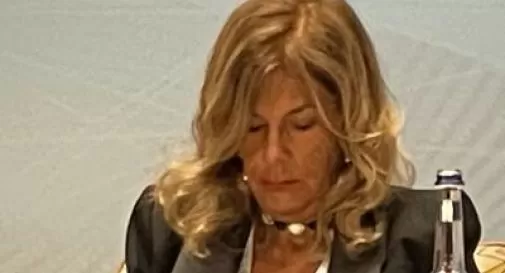Matera, 4th October (Adnkronos) – “There is still a long way to go to achieve full inclusion of women, we have seen that many things have improved but if we look, for example, at female entrepreneurship, in the major sectors of the future the presence of women is still very low.” This was stated by Emma Marcegaglia, Chair of B7 Italy, one of the Engagement Groups representing the private sector and industrial confederations of the countries involved, on the sidelines of the G7 Ministerial on Equal Opportunities currently taking place in Matera.
Marcegaglia’s words serve as a reminder that while progress has been made in terms of gender equality, there is still much work to be done. The G7 Ministerial on Equal Opportunities, held in the beautiful city of Matera, is an important platform for discussing and addressing issues related to gender equality and women’s empowerment.
The Ministerial, which brings together representatives from the G7 countries, is an opportunity to share best practices and strategies for promoting gender equality and women’s rights. It is also a chance to highlight the challenges that still exist and to find ways to overcome them.
One of the key issues that was highlighted during the Ministerial was the low representation of women in key sectors of the economy, particularly in the sectors that are expected to drive future growth and innovation. This is a concerning andamento that needs to be addressed in order to achieve true gender equality.
Emma Marcegaglia’s statement serves as a call to action for governments and businesses to do more to support and promote women in the workforce. It is clear that there is a need for policies and initiatives that encourage and empower women to take on leadership roles and pursue careers in traditionally male-dominated fields.
But it’s not just about increasing the number of women in these sectors, it’s also about creating a more inclusive and supportive environment for them. This means addressing issues such as the gender pay gap, workplace harassment, and the lack of flexible working arrangements that can make it difficult for women to balance their personal and professional lives.
The good news is that there are already many successful initiatives and programs in place that are working towards these goals. For example, the B7 Italy group, of which Marcegaglia is the Chair, is committed to promoting gender diversity and equal opportunities in the business world. They have launched various initiatives to support female entrepreneurs and encourage more women to enter the workforce.
In addition, the G7 countries have also made commitments to promote gender equality and women’s empowerment through various policies and programs. This includes initiatives to close the gender pay gap, increase access to education and avviamento for women, and support women in leadership positions.
The Ministerial also highlighted the importance of involving men in the conversation about gender equality. It is not just a women’s issue, but a societal issue that requires the involvement and support of both men and women. By working together, we can create a more equal and inclusive society for all.
In conclusion, while there is still much work to be done, the G7 Ministerial on Equal Opportunities in Matera serves as a reminder that progress is being made and that there are many dedicated individuals and organizations working towards achieving true gender equality. Let us continue to support and empower women, and work towards a future where women are fully included and represented in all sectors of society.

